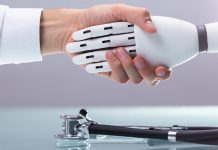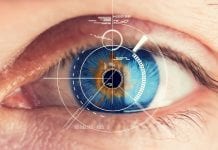Artificial Intelligence Related News
Age-related macular degeneration may be reduced by artificial intelligence
Action Against AMD have partnered with artificial intelligence company BenevolentAI to uncover the mysteries of age-related macular degeneration.
Artificial intelligence has essentially been used to...
Artificial Intelligence – is it fake news for health and social care?
Ian Jackson, Medical Director and Clinical Safety Officer at Refero, makes the case for renaming Artificial Intelligence in health and social care.
The Department of...
The role of new technologies in creating a patient-centric future
Christian Hebenstreit, of Medidata Solutions, talks how becoming patient-centric in clinical trials means being open to new ways of working.
Clinical trials have historically been...
World’s first life-saving 3D printed kidney changing the game for surgical operations
At this years SXSW event, the 3D printed kidney took the spotlight, highlighting the technology behind the procedure and demonstrating the future of complex...
Foetal alcohol spectrum disorder: using AI for effective screening
Scientists have developed a new tool that can quickly and affordably screen children for foetal alcohol spectrum disorder (FASD) – could this lead to...
Network Analysis: identifying cancer symptom clusters
Pioneering AI technology, Network Analysis, is now able to identify and predict the development of cancer symptom clusters – could this alleviate distress?
Cancer patients...
Could robotic sensor technology diagnose live reproductive issues?
A third of women in England suffer severe reproductive health problems such as infertility and early menopause, but now robotic sensor technology could identify...
Do you think AI could treat Chronic Obstructive Pulmonary Disease?
According to WHO, Chronic Obstructive Pulmonary Disease will be the third leading cause of death worldwide by 2030, but could AI successfully treat this?
Following...
Introducing the surgeon who used 3D printing software for a life-changing transplant
Presenting Dr. Tim Brown, consultant transplant surgeon at Belfast City Hospital, Northern Ireland, who used 3D printing software to aid a complex, life-changing operation.
Brown...
IBM fingernail sensor – understanding Parkinson’s with AI
The IBM fingernail sensor prototype has the aim of helping clinicians to continuously track, monitor and more accurately diagnose Parkinson’s disease with AI.
The Michael...
Using AI to diagnose diabetic eye disease
Researchers studying diabetic retinopathy are using artificial intelligence to support instant diagnosis of diabetic eye disease.
Diabetic retinopathy causes vision loss in adults and may...
Health Europa talk digital medicine and digital health companies
With many digital health companies involved in mergers & partnerships, and with a positive shift in the world of digital medicine and health, significant...
Artificial intelligence in healthcare – has there been a misdiagnosis of the benefits?
In regards to artificial intelligence in healthcare, F5 Networks’ Ralf Sydekum asks: Can human doctors ever really be replaced by AI-enabled apps?
Looking further into...
We’re one step closer to giving artificial intelligence human hearing
Researchers have simulated the process of the sensory sounds coding for artificial intelligence by modelling human hearing.
Scientists of Peter the Great St. Petersburg Polytechnic...
Chronic Obstructive Pulmonary Disease decreased by new AI app
A new AI app successfully decreases symptoms of Chronic Obstructive Pulmonary Disease, an incurable lung disease affecting 64m people worldwide.
Published in the International Journal...
Towards personalised medicine: Artificial Intelligence in cancer
Dr Andrea Sottoriva introduces REVOLVER and considers the wider application of Artificial Intelligence in cancer research and care.
Developed by scientists at The Institute of...
Healthtech device for locked-in syndrome patients now offered by NHS Supply Chain
Patients with locked-in syndrome can now receive a breakthrough AI-powered healthtech device available through the NHS Supply Chain.
EyeControl have developed a ground-breaking communication device...
New imaging biobank for oncology developed at University of Pisa
A project to develop a new imaging biobank for oncology, which aims to support the diagnosis of malignant tumours, has received €10m in EU...
Artificial Intelligence brings personalised cancer treatment one step closer
Personalised cancer treatment could soon become a reality thanks to a new Artificial Intelligence (AI) technique that can predict how tumours will progress and...
Locked-In Syndrome patients given new revolutionary AI-powered device
Patients with Locked-In Syndrome have been given a new sense of freedom with the first ever wearable continuous communication device.
The EyeControl is a groundbreaking...





















